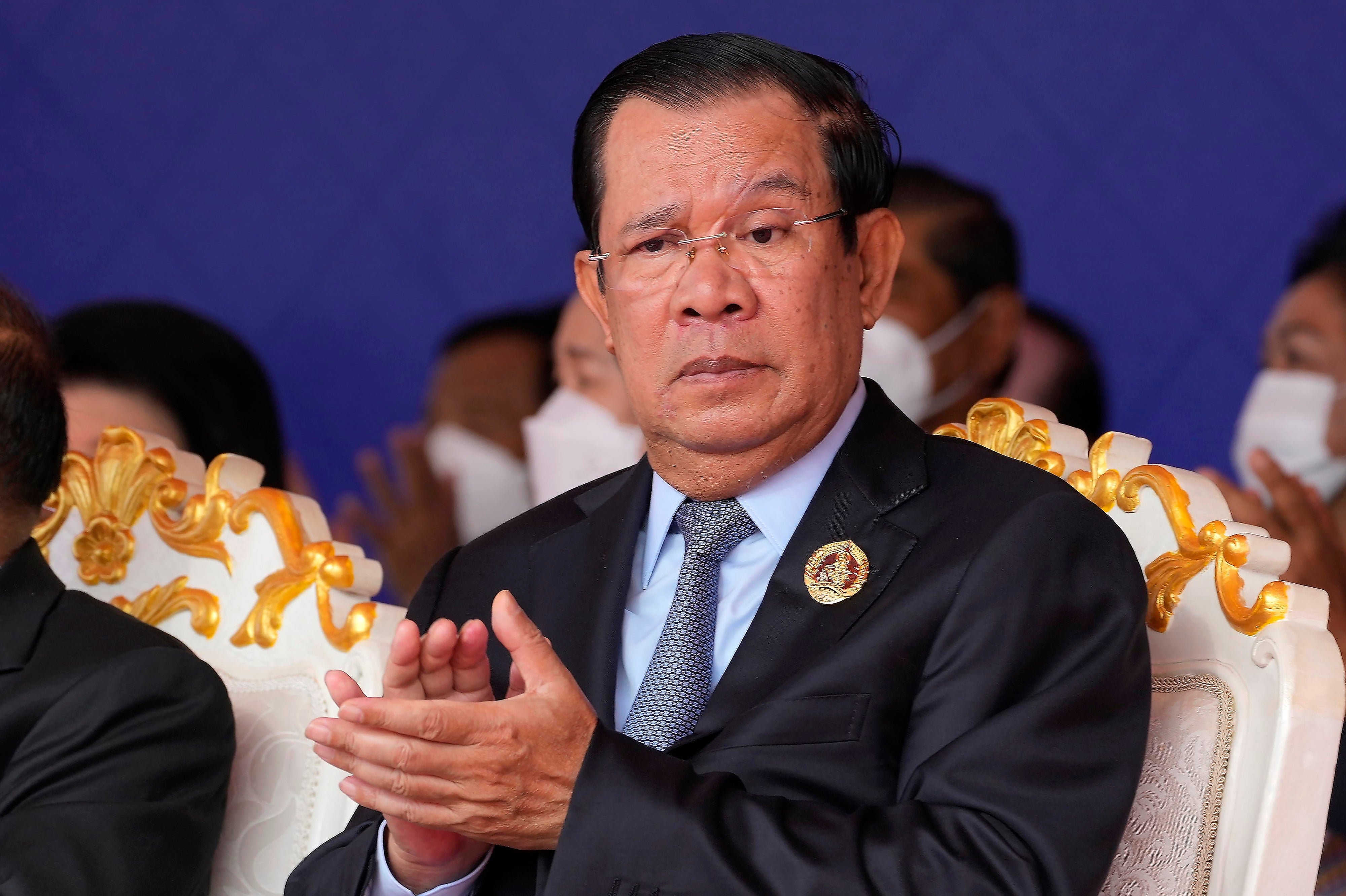Cambodian leader says people who don't vote will be barred from being candidates in future elections
Cambodia’s long-serving leader says his government will amend the country’s election law to bar anyone who fails to vote from running as a candidate in future elections, in his latest move to marginalize his political foes

Cambodia’s long-serving leader said Tuesday his government will amend the country’s election law to bar anyone who fails to vote from running as a candidate in future elections, in his latest move to marginalize his political foes.
Prime Minister Hun Sen said the change is needed because candidates for public office need to show their civic responsibility. He said the amendment will be ready for approval by lawmakers before a July 23 general election. The bill’s passage is a certainty, since all members of the National Assembly are members of Hun Sen’s ruling Cambodian People’s Party.
Most prominent opposition members have been in self-imposed exile to avoid being jailed on various charges they say are trumped up and unfair, and the proposed amendment would keep them from running in future polls without any further action needed to bar them. Opposition figures still inside the country who failed to vote would face the same consequences.
The law would also discourage an election boycott by placing opposition figures who wished to contest future polls in the awkward position of appearing to be hypocrites if they called for people not to vote while they themselves cast ballots.
Hun Sen’s announcement of the plan, made in a speech to garment factory workers on the outskirts of the capital, Phnom Penh, came less than a month after the main opposition party was barred from participating in the July polls because it did not provide all of the paperwork required for registering.
The Candlelight Party said it could not provide some required documentation to the National Election Committee because it had been seized in a police raid several years ago. Cambodia’s Constitutional Council refused to overturn the committee’s decision not to register the party, drawing widespread criticism that the election would not be fair without its participation.
The U.S. State Department said it was “deeply troubled” by the decision to bar the Candlelight Party and urged the government “to reverse course to ensure its citizens can participate in a fair, multiparty democracy.”
U.N. Secretary-General Antonio Guterres implicitly criticized the crackdown on the opposition.
“The secretary-general reiterates that inclusive elections, in which a plurality of views and voter choices is represented, are important to engender confidence in the electoral process and underpin the ability of Cambodia’s people to exercise their democratic rights,” U.N. spokesperson Stephane Dujarric said on May 31.
Hun Sen, 70, an authoritarian ruler in a nominally democratic state, has been in power for 38 years. He and his party hold all the advantages of incumbency ahead of the election in terms of political organizing, personnel, finances and media influence. About 9.7 million Cambodians are registered to vote for the 125 members of the National Assembly.
In his speech on Tuesday, Hun Sen said he felt pressured to implement the revised voting law because he was being stabbed in the back by political opponents who were appealing to people to boycott the election or cast invalid ballots.
He said the purpose of amending the law was not to defeat anyone but “to promote responsibility among the people who want to stand as candidates. How can they become a member of Parliament, a senator, or serve on commune, district, municipality and provincial councils, if they themselves do not go to vote and try to keep other people from going to vote, too?”
He said people who don't cast ballots would still have the right to vote and would only lose their right to be a candidate.
The Candlelight Party is the unofficial successor to the Cambodia National Rescue Party, which posed a serious challenge to Hun Sen’s party before elections in 2018. It was dissolved just months ahead of the polls by a controversial court ruling that alleged it had plotted the illegal overthrow of the government. The party’s disbanding enabled Hun Sen's party to win all the seats in the National Assembly.
___
Grant reported from Bangkok.
Bookmark popover
Removed from bookmarks